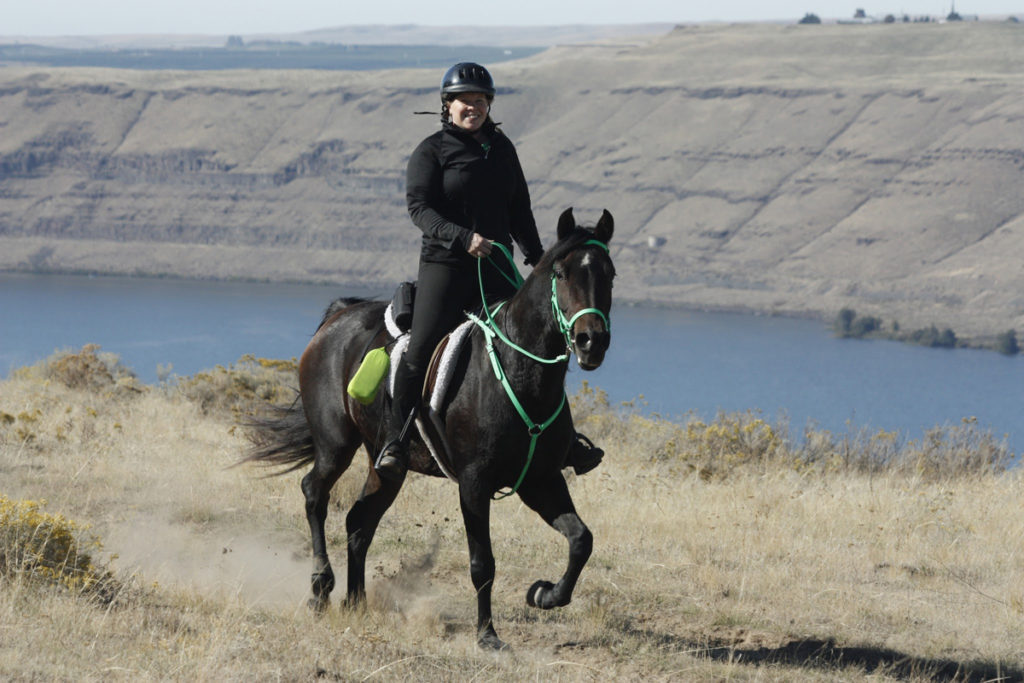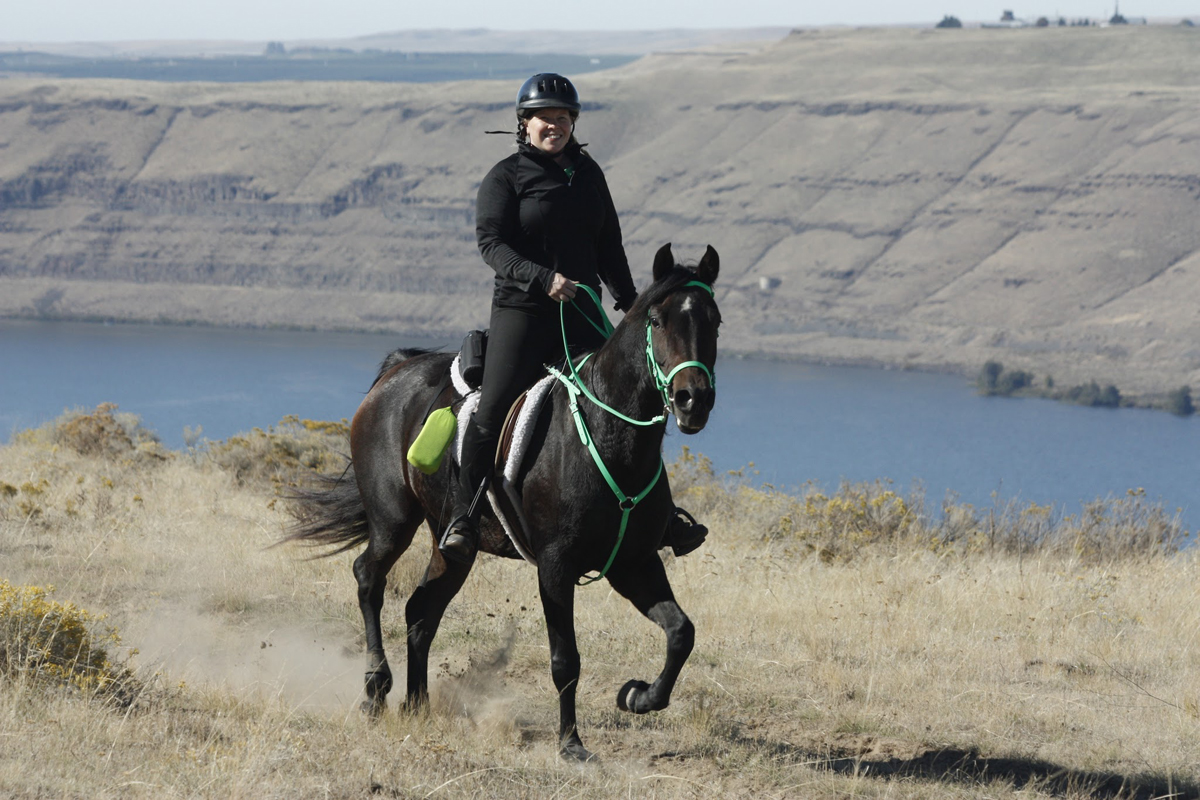by Laura Schonberg

When Laura Waitt isn’t at work vetting large animals, she is on the back of one of her three horses training for an endurance ride. A resident of Skagit Valley, she challenges herself as a rider to “get smarter” about listening to her horses in order to cross the 50 mile finish line.
Why I horse: My job is very stressful with daily life-and-death decisions. While being a vet might seem glamorous, when you’re on call life goes on hold because you’re always waiting. “Horsing” is my escape, my reset and how I keep going with the emotional aspects of my work. The ability to get on your horse, turn off the phone and get away is wonderful.
How I make time: On precious days off, I ride. No matter the weather—even 39 degrees and raining sideways. Sometimes it’s more misery than it’s worth, but I go anyway. It’s not usually hard to get myself out because I know I have to do it. The conditioning is just as important for my mental health as it is my horses’ physical health; the conditioning lays the groundwork for everything. Five years ago, I knew nothing about endurance riding, but it creeps up on you. I rode my very first ride in 2013. Since then, I haven’t looked back. Every moment I’m out of the saddle, I wish I was back in it! There’s two ways to get a competitive endurance horse: prioritize riding and conditioning, no matter what, or spend $8,500 for one ready to go. I have to make the time. Endurance is a lifetime sport; it’s worth it for me to be committed and something I can be good at. You don’t have to be rich, you can have grade horses living out in the field and expensive gear isn’t necessary. You can show up with a tent, just be willing to learn. You will be with people that welcome you. Making time to do endurance races is worth it because you’re with like-minded people that want to help you out. If you show up, you will have friends.
Getting smarter: I’ve had to learn things, like what to feed my horse, how they utilize nutrition and how to condition. I’ve had to learn how to manage each individual horse and what they can or can’t take. I have to think about variations in the weather, how we ride, the terrain and the distance. I need to listen; getting smarter includes listening to my horse when they’re trying to tell me something. People have really strong opinions about endurance riding…I’ve learned about everything from how to set up a tent in the dark, to how to change a flat tire, to considerations about giving electrolytes during a race. It’s all part of the endurance world; so much can happen on the way, from first loading the horse to the actual trail.
Horse set up: Buying horse property is a dream. Until then, we live in town and board at a barn. My riding schedule includes that the two main horses in training get ridden every week. This “first string” gets ridden twice as much as the “second” string. The first string gets ridden hard to get them ready for a ride, then they get a week off. The second string gets their conditioning during the downtime. Every single horse I meet is different; it’s so very humbling.
Advice to others: Get out there and enjoy your horses. They’re expensive luxury items. If you’re not enjoying them, find a trainer or mentor, someone to help you enjoy them. They’re big and they’re dangerous. If it’s not fun, don’t do it. Or get help. Consider joining the endurance family as it’s so easy to be welcomed. All you have to do is get out and try.
Advice to myself: Keep riding and be more patient. It’s easy to let my goals define where I am. Sometimes I need to take a step back and remember that goals are just goals. If I need to redefine those to be successful I need to do that rather than making them all consuming. I need to listen to my animals and not have “race brain,” possibly pushing a horse too fast either mentally or physically. Not accomplishing a goal is not failure. Horses have minds of their own; figuring out how they are spectacularly different is part of the gift of riding.

Thankful to call the Pacific Northwest home, Laura Schonberg is an educator in a local school district and is outside at her place when she isn’t inside at work. Summers are spent cow-girling at a friend’s ranch, with forrays into the Cascade Mountains as time and weather permit year-round. Winter finds her at a local barn doing dressage lessons to support her ranch riding, and re-starting horses through the county’s equine rescue program.

